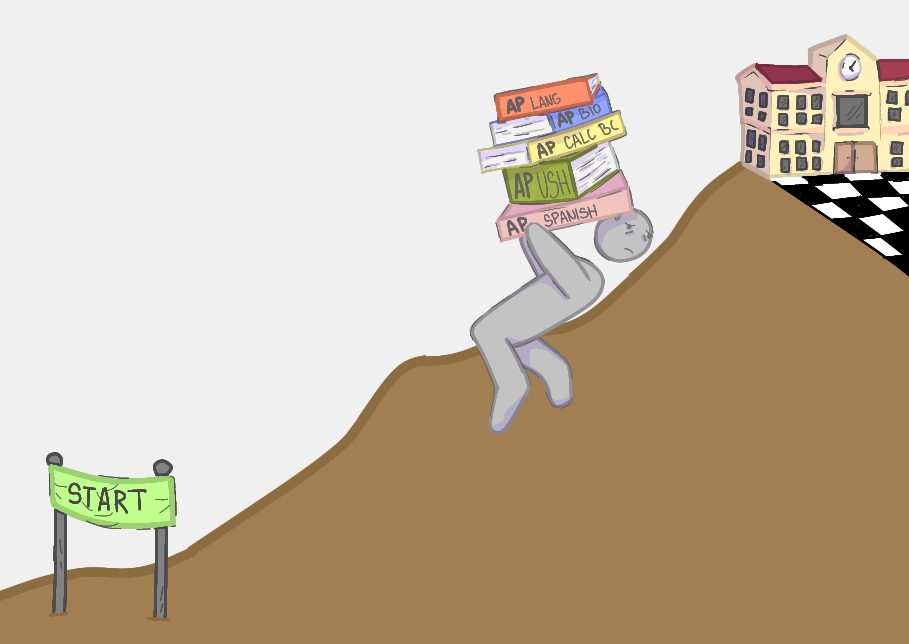
College is a competition. The system of admissions for colleges is impractical and has led to a toxic mindset among students. The second students step into high school, they are expected to attend rigorous courses, join clubs and take standardized tests to help their admittance into their top schools.
One of the most prominent methods is “college credit” or more notably, Advanced Placement courses. The College Board is an organization that creates and delivers standardized examinations used for college placement and entrance. It markets the AP classes as rigorous courses students may take that can offer college credit, allowing students to bypass some required courses in colleges in order to graduate faster or have lighter course loads. 86% of the top 153 colleges and universities restrict the awarding of AP credit in some way, making it subjective to each institution.
With these current decisions, a cruder system and mentality has emerged. What once began as an alternative route to fuel students’ academic interests and set them up for that dynamic college rigor has now turned into a competition. This shift has led to an increased risk of high burnouts.
In the U.S. News & World Report, a former Stanford Admissions officer, Alix Coupet, remarked that while some stress is normal, too intense of a workload may burn students out. For some students, the stress of high-stakes AP examinations can lead to “drastic shifts in behavior, sleep patterns, diet and academic performance.”
Some may reason that, with the shift to test-blind or test-optional admissions for some colleges, students must turn to AP scores to prove their academic success.
Nonetheless, it is important to keep in mind that APs are not entirely useless. They were originally designed to be challenges. AP courses demand a lot, potentially too much, but they teach an individual how far one can go.
According to The Princeton Review, an organization known for offering college preparation to students, “The bottom line is that admission committees want to see that you are challenging yourself academically, which means taking honors, AP or IB (International Baccalaureate) courses if they are available.”
However, academic challenges are subject to each individual, so putting every individual on one scale does not seem like a fair measure of the integrity of each student.
Colleges are meant to be education systems with foundations that support the growth of an individual’s academic ability. In fact, that’s what most students who go to college see: a safe community where they can make mistakes and explore what they would like to pursue as adults. But still, APs are marketed as an advantage to gain admission into a top college
With decreasing acceptance rates, getting admitted into a good college is a chase and studying at a college is a race. APs are merely the stepping stones College Board employs to keep the monopoly going.
“APs are merely the stepping stones College Board employs to keep the monopoly going”
While pushing one’s limits might be a valuable life lesson, depending on each individual, high school could be the most dangerous time to experience it. Students should be aware of the downsides when making the decision to pursue these rigorous courses, and universities and College Board should be more transparent about the system and what students they are really looking for.




